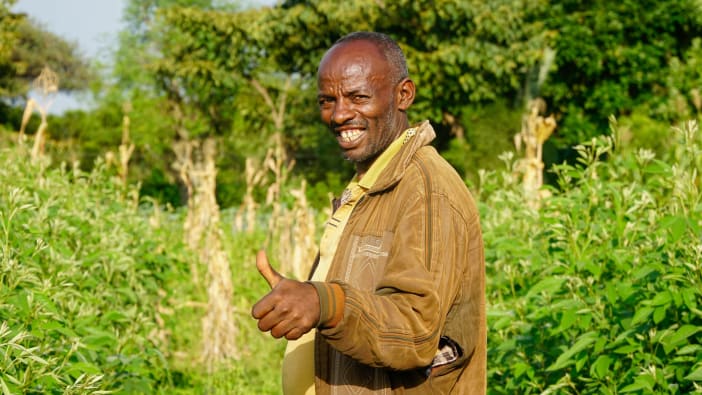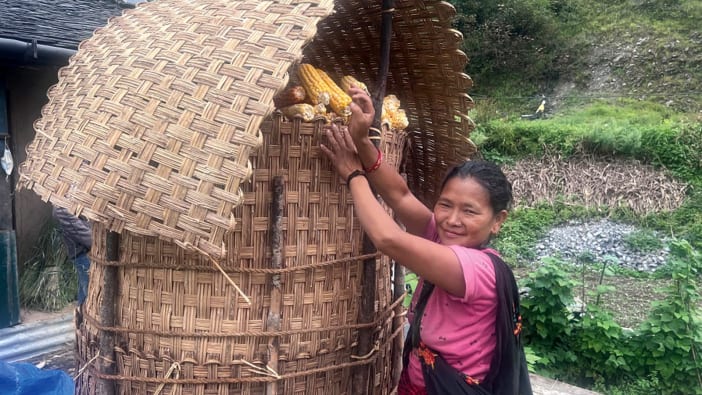Muscovy ducks are an excellent way of controlling flies. At a recent ceremony in Togo, a number of muscovy ducks were killed and prepared for cooking. An employee of the Heifer Project opened their crops, out of interest, to see what they had been eating. (The crop is an enlarged pouch in the throat of a bird where food is stored before being digested.) Each crop was filled with hundreds of flies!
Pigs can cause great damage to crops. In Papua New Guinea, they are usually tethered to prevent damage. In some areas, large, triangular collars of wood or bamboo are fitted round the pigs necks and tied firmly in place. Pigs that do get loose are then unable to get through fences.
Farmers in the Transkei, South Africa, traditionally lend farm animals to their neighbours and other family members. The borrower looks after the animals until they produce offspring. The animals are returned to the original owner and the borrower keeps some of the offspring, in return for looking after the animals. This system works well because it follows a traditional pattern that is well understood. The lenders increase their animals without needing to care or feed for them. The borrower gets animals without the need to buy them.
New breeds of ducks and geese were introduced to the area and distributed using exactly this pattern very successfully.
Diarrhoea often affects young animals such as calves, goats and piglets. Medicines are expensive and not always available. Work in Indonesia has shown that young animals respond well to Oral Rehydration Therapy - just as young children do! Make up ORT in exactly the same way as for people and give it regularly with a clean soda bottle. Keep the sick animal clean and separate from other animals.
The Heifer Cattle Project in Uganda distributes improved cows on the agreement that the farmer promises to return the first-born female calf to the Project, so that another farmer can then benefit. The idea is scriptural - sharing benefits - and also builds up the framework of African community.
A farmer evangelist in Nigeria discovered he could save his crop- bound chickens by carefully cutting open the crop, using a new razor, taking out the blockage and sewing up the crop again. The same farmer found he could hatch eggs by wrapping them in cotton and putting them in a warm corner of the hut. (This was in a very warm area of Nigeria.)
Stephen German from Zaire writes: ‘If animals, such as goats, are causing a problem with damage to crops, try mixing some of their faeces (manure) with water. Then sprinkle onto the plants they are eating.’
A successful rabbit-breeding project in St Kitts has a rule that if a rabbit gets sick, it is immediately killed. They do not try to treat sick animals at all. In this way, diseases cannot spread - only the strong, healthy rabbits breed and no money is needed for medicines.
A farmer in Nigeria found a useful idea for protecting his chicks from hawks (see pages 8 and 9). He dyed them with gentian violet (or potassium permanganate) - both available from large chemist shops or, possibly, health projects. The chemical does not harm the chicks and their bright purple colour scares away the hawks!









